-
 Bitcoin
Bitcoin $76,444.7530
-3.77% -
 Ethereum
Ethereum $1,473.8355
-5.46% -
 Tether USDt
Tether USDt $0.9991
-0.08% -
 XRP
XRP $1.7965
-5.51% -
 BNB
BNB $553.4919
-0.36% -
 USDC
USDC $0.9999
-0.02% -
 Solana
Solana $105.2981
-1.74% -
 TRON
TRON $0.2303
0.81% -
 Dogecoin
Dogecoin $0.1422
-4.62% -
 Cardano
Cardano $0.5587
-4.41% -
 UNUS SED LEO
UNUS SED LEO $8.9866
1.01% -
 Toncoin
Toncoin $2.9933
-4.74% -
 Chainlink
Chainlink $10.9113
-4.81% -
 Stellar
Stellar $0.2215
-4.76% -
 Avalanche
Avalanche $16.1163
-3.29% -
 Sui
Sui $1.9371
-3.89% -
 Shiba Inu
Shiba Inu $0.0...01065
-6.69% -
 Hedera
Hedera $0.1469
-3.29% -
 MANTRA
MANTRA $6.2058
-1.53% -
 Dai
Dai $1.0000
0.01% -
 Bitcoin Cash
Bitcoin Cash $269.3457
-2.08% -
 Polkadot
Polkadot $3.3773
-5.87% -
 Litecoin
Litecoin $69.2204
-2.50% -
 Ethena USDe
Ethena USDe $0.9986
-0.01% -
 Bitget Token
Bitget Token $4.0180
-3.25% -
 Pi
Pi $0.5649
-4.50% -
 Hyperliquid
Hyperliquid $11.1928
-2.80% -
 Monero
Monero $195.3885
-4.41% -
 OKB
OKB $50.9235
-0.59% -
 Uniswap
Uniswap $4.7688
-6.95%
What are the advantages and disadvantages of cloud server mining?
Cloud server mining offers accessibility and scalability but carries risks like provider dependence, downtime, and hidden costs; careful research and contract review are crucial.
Mar 20, 2025 at 09:28 am
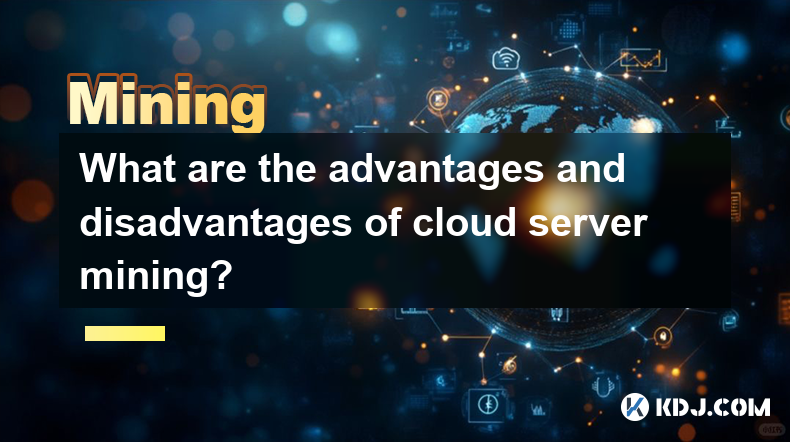
Key Points:
- Advantages: Accessibility, scalability, cost-effectiveness (potentially), reduced hardware maintenance, and increased security (potentially).
- Disadvantages: Dependence on third-party providers, potential for downtime, security risks (potentially), latency issues, and hidden costs.
What are the advantages and disadvantages of cloud server mining? Cloud server mining offers a compelling alternative to traditional cryptocurrency mining, leveraging remote server infrastructure to perform the computationally intensive processes. However, it's crucial to weigh the benefits against potential drawbacks before committing.
Advantages of Cloud Server Mining:
- Accessibility: Cloud mining removes the need for expensive and space-consuming hardware. Anyone with an internet connection can participate, regardless of technical expertise or physical limitations. This democratizes access to cryptocurrency mining, opening the door to a wider range of participants.
- Scalability: Cloud mining allows for easy scalability. Miners can easily adjust their hashing power by increasing or decreasing their rented computing resources, adapting to fluctuating market conditions and profitability. This flexibility is a significant advantage over traditional setups.
- Cost-Effectiveness (Potentially): While upfront costs might be lower than purchasing dedicated mining hardware, the long-term cost-effectiveness depends on the chosen provider and contract terms. Hidden fees and fluctuating electricity costs can negate initial savings. Careful contract review is essential.
- Reduced Hardware Maintenance: The provider handles all hardware maintenance, including repairs and upgrades. This eliminates the need for technical expertise and reduces the burden of managing physical equipment. This frees up the miner's time and resources.
- Increased Security (Potentially): Reputable cloud mining providers invest in robust security measures to protect their servers and the mining operations. This can offer enhanced security compared to individual setups vulnerable to theft or damage. However, security breaches are always a possibility.
Disadvantages of Cloud Server Mining:
- Dependence on Third-Party Providers: Cloud mining relies entirely on the provider's infrastructure and services. Provider bankruptcy, technical issues, or malicious actions can severely impact mining operations and potentially lead to losses. Diversification across multiple providers might mitigate this risk.
- Potential for Downtime: Server outages, maintenance, or network issues can disrupt mining operations, leading to lost opportunities and reduced profitability. The reliability of the provider is a crucial factor to consider. Service Level Agreements (SLAs) should be carefully examined.
- Security Risks (Potentially): While providers may offer robust security, there's always a risk of data breaches or unauthorized access. Choose providers with a proven track record of security and transparency. Understand their security protocols and data protection measures.
- Latency Issues: The distance between the miner's location and the cloud server can introduce latency, potentially affecting mining performance and profitability. This is especially relevant for algorithms that prioritize speed and low latency. Geographical location matters.
- Hidden Costs: Contracts often include hidden fees or charges that can significantly impact the overall cost. Thoroughly review all contract terms and conditions before committing to a cloud mining provider. Be wary of unusually attractive offers.
Common Questions and Answers:
Q: Is cloud mining profitable?
A: The profitability of cloud mining is highly variable and depends on several factors, including the cryptocurrency's price, the mining difficulty, the cost of cloud mining services, and the chosen hash rate. It's not guaranteed to be profitable and careful calculations are necessary.
Q: How do I choose a reputable cloud mining provider?
A: Research is crucial. Look for providers with a proven track record, positive user reviews, transparent pricing, and robust security measures. Verify their legitimacy and avoid providers promising unrealistic returns. Independent audits and reviews can be beneficial.
Q: What are the risks associated with cloud mining?
A: Risks include provider bankruptcy, security breaches, downtime, and hidden costs. The lack of control over the hardware and infrastructure is a significant risk. Diversification and thorough due diligence can mitigate some of these risks.
Q: What are the differences between cloud mining and traditional mining?
A: Traditional mining involves purchasing and maintaining your own mining hardware, while cloud mining rents computing power from a provider. Traditional mining offers more control but requires a larger upfront investment and technical expertise. Cloud mining is more accessible but introduces dependence on a third party.
Q: Can I mine Bitcoin using cloud mining?
A: Yes, many cloud mining providers offer Bitcoin mining contracts. However, the profitability of Bitcoin cloud mining is affected by the same factors as other cryptocurrencies, including network difficulty and Bitcoin's price. Be realistic about expectations.
Q: How secure is my cryptocurrency in cloud mining?
A: The security of your cryptocurrency in cloud mining depends largely on the security measures implemented by the provider. Reputable providers will employ various security protocols, but there's always an inherent risk associated with entrusting your assets to a third party. Regularly monitor your account and withdraw your earnings frequently.
Q: What are the typical contract terms for cloud mining?
A: Contract terms vary significantly between providers, but typically include the duration of the contract, the hash rate allocated, the payment method, and any associated fees. Read the contract carefully before signing, paying close attention to any clauses regarding termination, refunds, and dispute resolution.
Q: Are there any regulatory considerations for cloud mining?
A: The regulatory landscape for cryptocurrency and cloud mining is still evolving and varies significantly by jurisdiction. It's important to understand the applicable regulations in your region before engaging in cloud mining activities. Tax implications should also be considered.
Disclaimer:info@kdj.com
The information provided is not trading advice. kdj.com does not assume any responsibility for any investments made based on the information provided in this article. Cryptocurrencies are highly volatile and it is highly recommended that you invest with caution after thorough research!
If you believe that the content used on this website infringes your copyright, please contact us immediately (info@kdj.com) and we will delete it promptly.
- "Cardano (ADA) Price Could Dip Below $0.60, Following Previous Market Cycle"
- 2025-04-09 05:10:12
- BONK, the well-known meme coin, has risen over 35% in the last week, attracting meme coin investors in the market. So, what caused this rally?
- 2025-04-09 05:10:12
- Bitcoin (BTC) Investors May Not Exactly Feel It, but BTC Has Been a Relatively Good Bet
- 2025-04-09 05:05:12
- Donald's Bitcoin (DONBTC) Could Turn Early Investors into Multi-Millionaires, Like Shiba Inu (SHIB) and Dogecoin (DOGE) Did
- 2025-04-09 05:05:12
- 6 Upcoming Kraken Listings That Could Be the Next Big Thing in Crypto
- 2025-04-09 05:00:13
- COTI Unveils New Privacy-Focused Blockchain to Reshape Web3 Transactions
- 2025-04-09 05:00:13
Related knowledge
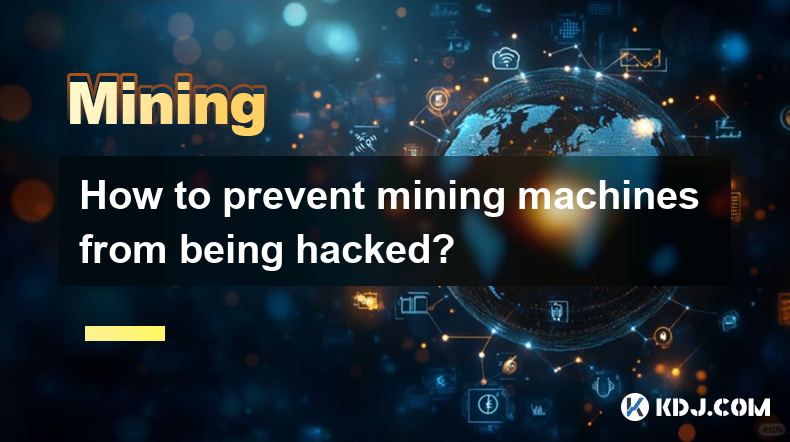
How to prevent mining machines from being hacked?
Apr 08,2025 at 09:00pm
In the world of cryptocurrency, mining machines play a crucial role in securing networks and validating transactions. However, these machines are also prime targets for hackers looking to exploit vulnerabilities for financial gain. Preventing mining machines from being hacked requires a multi-faceted approach that includes robust security measures, regu...
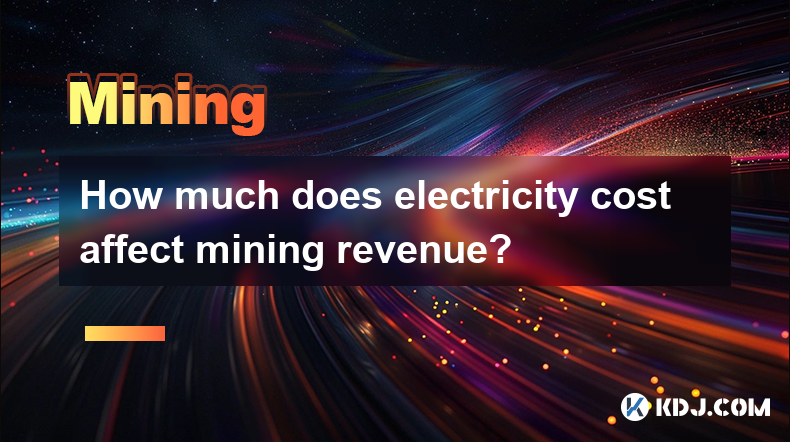
How much does electricity cost affect mining revenue?
Apr 08,2025 at 05:29pm
The cost of electricity plays a crucial role in determining the profitability of cryptocurrency mining. Mining revenue is directly impacted by the expenses incurred in running mining equipment, with electricity costs often being the most significant operational expense. Understanding how electricity costs affect mining revenue is essential for miners lo...
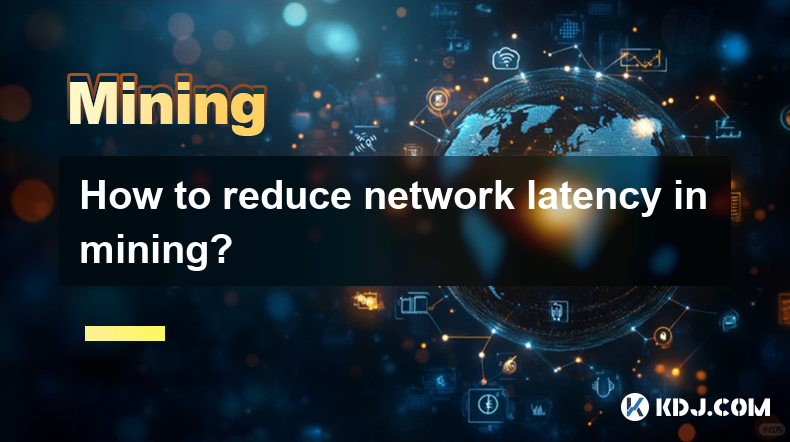
How to reduce network latency in mining?
Apr 09,2025 at 02:28am
Understanding Network Latency in MiningNetwork latency is a critical factor in the world of cryptocurrency mining. It refers to the time it takes for data to travel from its source to its destination across a network. In mining, lower latency can mean the difference between successfully adding a block to the blockchain and missing out on the reward. Red...

What is hashrate fluctuation?
Apr 08,2025 at 08:08pm
Hashrate fluctuation refers to the changes in the total computational power used by miners to process transactions and secure the blockchain network. This metric is crucial in the cryptocurrency world, particularly for networks like Bitcoin, Ethereum, and others that rely on proof-of-work (PoW) consensus mechanisms. Understanding hashrate fluctuation is...
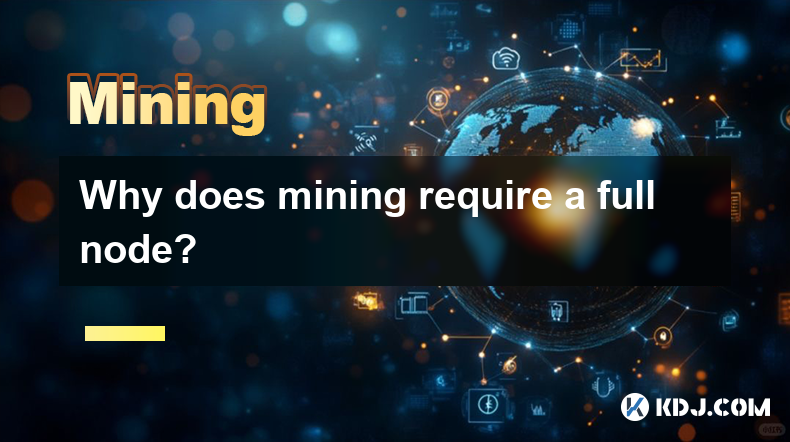
Why does mining require a full node?
Apr 08,2025 at 06:49pm
Mining in the cryptocurrency world is a complex process that involves verifying transactions and adding them to the blockchain. One of the key components required for mining is a full node. But why is a full node necessary for mining? Let's delve into the reasons and explore the intricacies of this requirement. What is a Full Node?A full node is a progr...
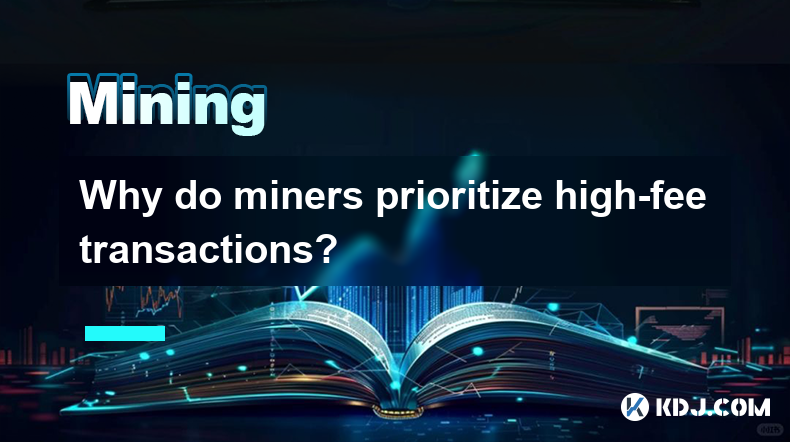
Why do miners prioritize high-fee transactions?
Apr 08,2025 at 05:01pm
Miners in the cryptocurrency ecosystem, particularly in networks like Bitcoin, play a crucial role in validating and adding transactions to the blockchain. One of the key factors that influence their decision-making process is the transaction fee associated with each transaction. Miners prioritize high-fee transactions primarily because these fees direc...

How to prevent mining machines from being hacked?
Apr 08,2025 at 09:00pm
In the world of cryptocurrency, mining machines play a crucial role in securing networks and validating transactions. However, these machines are also prime targets for hackers looking to exploit vulnerabilities for financial gain. Preventing mining machines from being hacked requires a multi-faceted approach that includes robust security measures, regu...

How much does electricity cost affect mining revenue?
Apr 08,2025 at 05:29pm
The cost of electricity plays a crucial role in determining the profitability of cryptocurrency mining. Mining revenue is directly impacted by the expenses incurred in running mining equipment, with electricity costs often being the most significant operational expense. Understanding how electricity costs affect mining revenue is essential for miners lo...

How to reduce network latency in mining?
Apr 09,2025 at 02:28am
Understanding Network Latency in MiningNetwork latency is a critical factor in the world of cryptocurrency mining. It refers to the time it takes for data to travel from its source to its destination across a network. In mining, lower latency can mean the difference between successfully adding a block to the blockchain and missing out on the reward. Red...

What is hashrate fluctuation?
Apr 08,2025 at 08:08pm
Hashrate fluctuation refers to the changes in the total computational power used by miners to process transactions and secure the blockchain network. This metric is crucial in the cryptocurrency world, particularly for networks like Bitcoin, Ethereum, and others that rely on proof-of-work (PoW) consensus mechanisms. Understanding hashrate fluctuation is...

Why does mining require a full node?
Apr 08,2025 at 06:49pm
Mining in the cryptocurrency world is a complex process that involves verifying transactions and adding them to the blockchain. One of the key components required for mining is a full node. But why is a full node necessary for mining? Let's delve into the reasons and explore the intricacies of this requirement. What is a Full Node?A full node is a progr...

Why do miners prioritize high-fee transactions?
Apr 08,2025 at 05:01pm
Miners in the cryptocurrency ecosystem, particularly in networks like Bitcoin, play a crucial role in validating and adding transactions to the blockchain. One of the key factors that influence their decision-making process is the transaction fee associated with each transaction. Miners prioritize high-fee transactions primarily because these fees direc...
See all articles






















































































